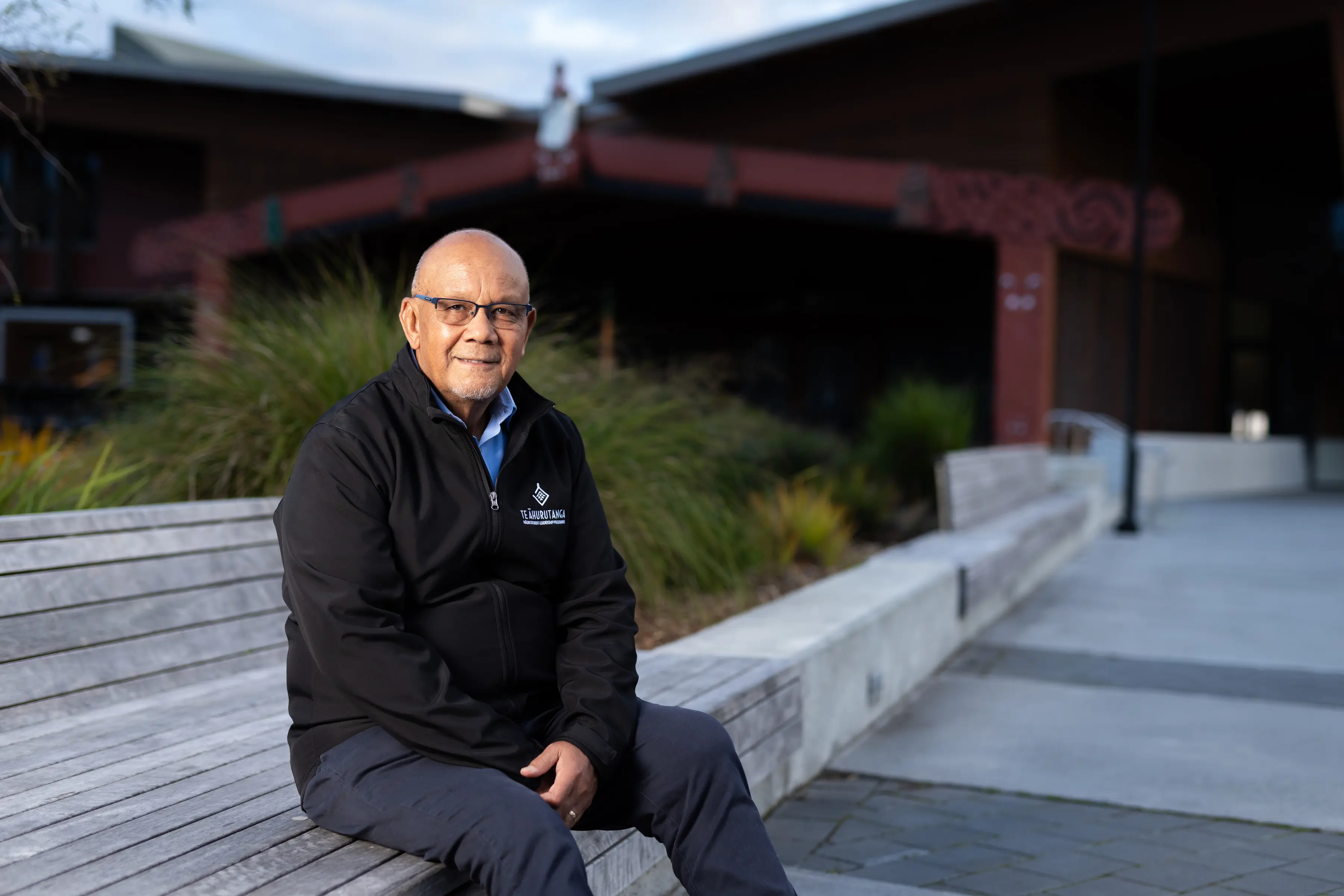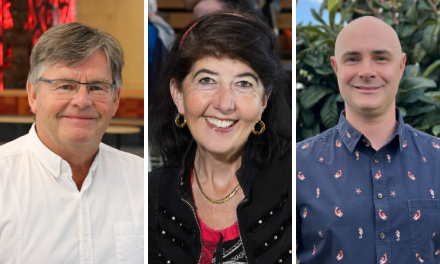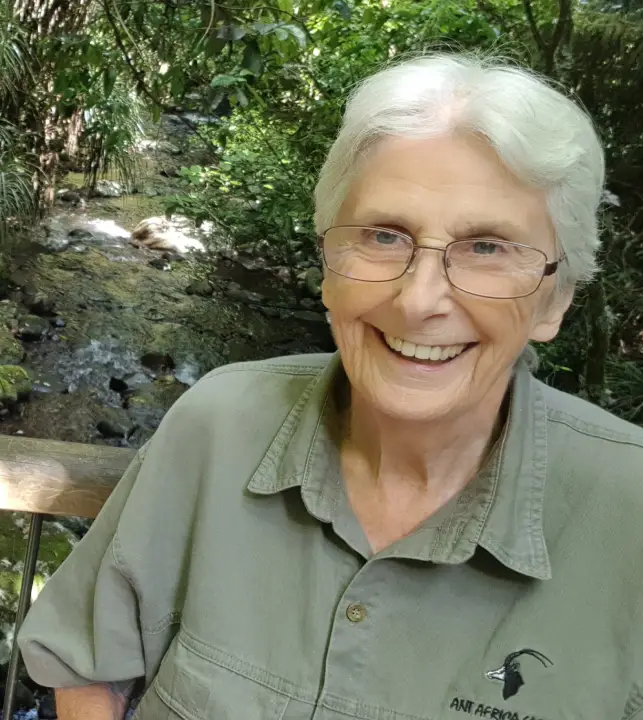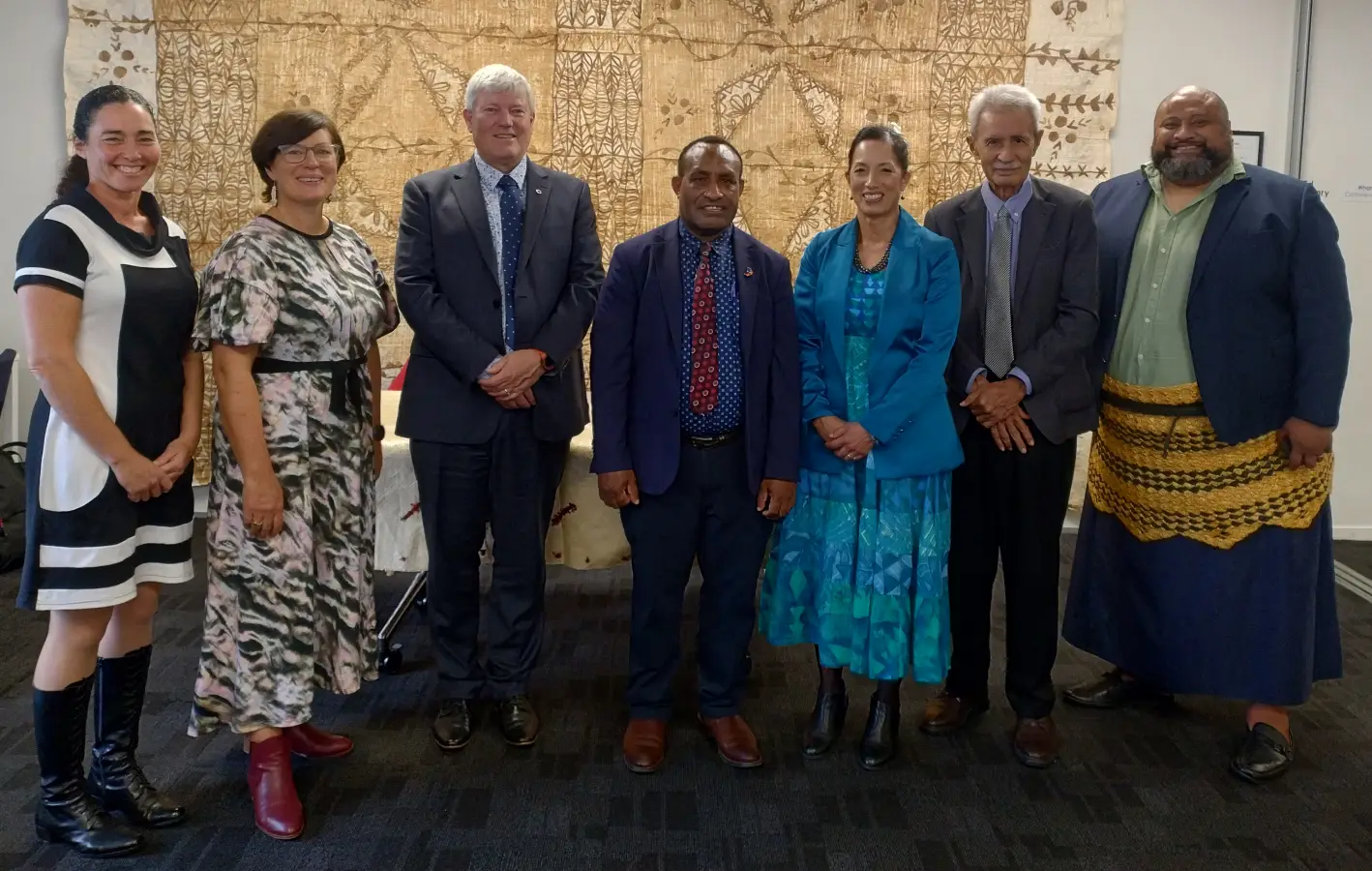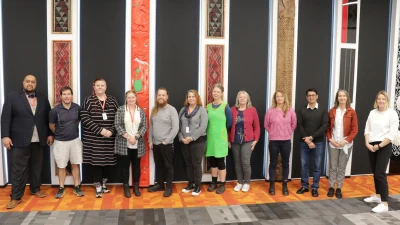
Participants in the Te Aurei Pilot Programme at Tauranga in September 2022. Dr Abhishek Mukherjee (third from right).
University of Waikato researcher Dr Abhishek Mukherjee says as an immigrant from India he had little understanding of the context of te ao Māori in New Zealand, but he was always striving to learn.
“It’s so vast. You can’t just read a book and understand it all. You need much more context around place and why things happen certain ways and the history,” says Abhishek.
When the University launched the Te Aurei Professional Development Pilot Programmes for staff in 2022, he knew it was something he needed to get involved with.
He joined the pilot programme led by Taha Tangitu-Huata and Joseph Macfarlane over three days at the Tauranga Campus between September and November 2022.
“Our cohort was all starting from different levels of knowledge. It was really well presented in a way that was easy to understand and in a relaxed environment for learning,” says Abhishek.
Included in the programme was a field trip to Gate Pā and Mauao an introduction to Te Tiriti o Waitangi and an overnight stay in Te Manawaroa.
He says the workshop on the Treaty of Waitangi was one of the most eye-opening presentations for him.
“I come from India, and we have a colonised history. I related to it so much. We saw the Treaty in Māori and English and the difference in language and how it was interpreted,” says Abhishek.
As an immigrant he says it helped him realise his responsibility to the Treaty and to be a good ally to Māori.
“We are working in positions that have power and influence and if I don’t understand and appreciate the place of the Treaty, I am doing a disservice to New Zealand. This realisation came to me after the workshops,” says Abhishek.
He says the cohort all had different levels of understanding from fluent te reo Māori speakers who were very advanced but wanted to understand the context of Tauranga Moana to others like him who were at the start of their journey.
“It has given me a network to reach out across the University and continue my journey with. We sometimes get a bit siloed in our areas of work and it was great to have this experience with staff I don’t work with day-to-day,” says Abhishek.
He said the learnings were also useful in the context of the Academic Advancement Process which now integrates mātauranga Māori.
“This programme is also supportive in understanding how I can support and integrate mātauranga Māori into my work.”
This research aligns with the following United Nations Sustainable Development Goals:


